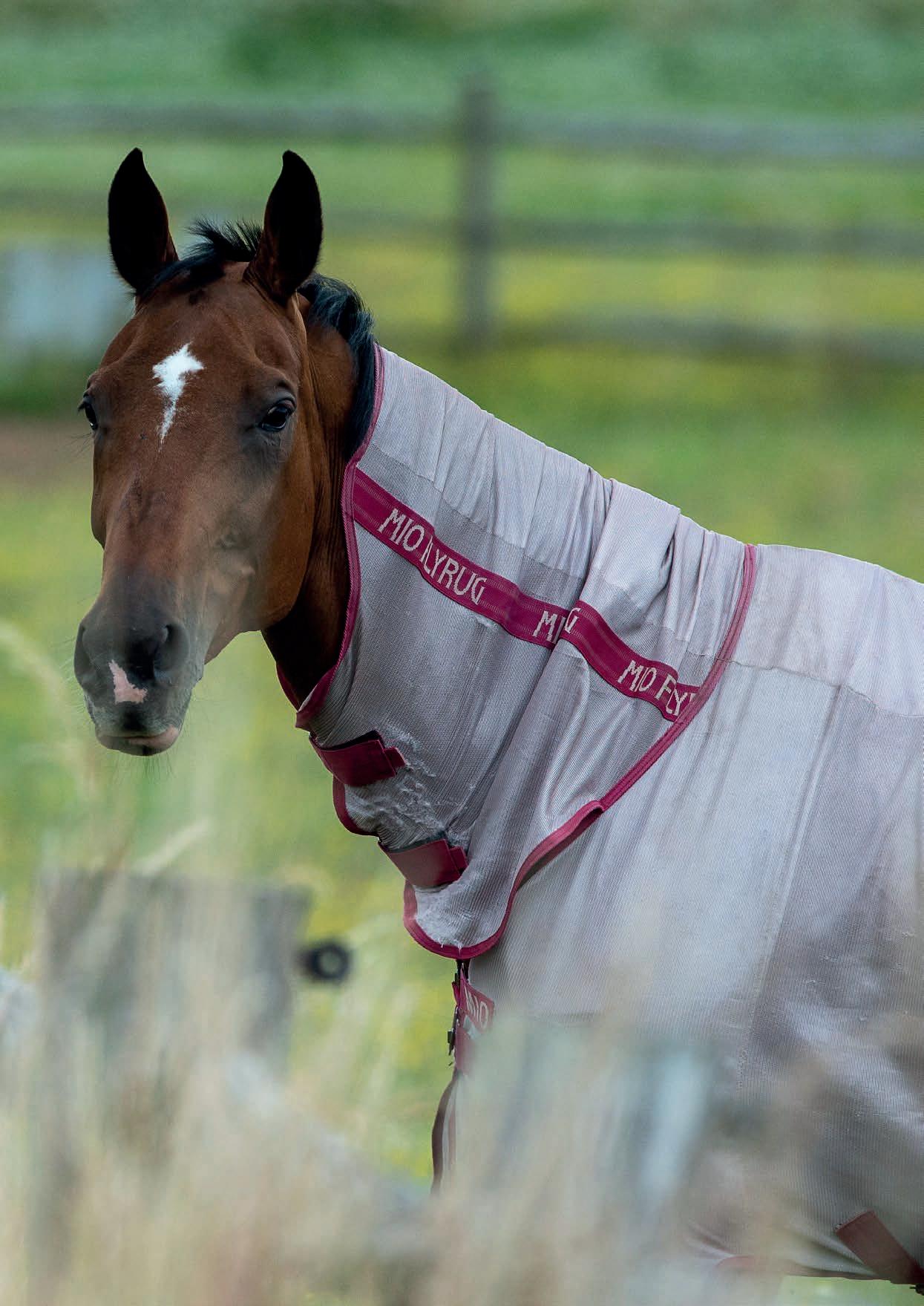 As told to Kiera Boyle.
As told to Kiera Boyle.
Improve your straightness between fences PART TWO


 As told to Kiera Boyle.
As told to Kiera Boyle.
Improve your straightness between fences PART TWO

Seeing the perfect stride every time is a skill that takes plenty of practice to perfect, and nailing your shot to each fence certainly goes a long way to achieving a clear round.
However, like anything in showjumping, the secret ingredient is your canter, and that’s something you can work on from the comfort of your arena at home. In part one we focused on how to improve your horse’s skillset, but in part two, we’ll be paying more attention to your role in achieving the perfect clear.
Learning to construct the ultimate canter, as well as training yourself to ride straight and accurate lines, is the best way to set yourself up for success. Your approach and getaway, therefore, are just as important as the jumping effort itself, and I have two different exercises to help you create the perfect before and after over a fence.
Jay Halim is a top British showjumper and much-loved equestrian personality. He balances producing his string of horses with teaching and coaching from his Cotswold base, as well as breeding sports horses under his JTH prefix.


➤ Maintain a consistent canter rhythm ➤ Jump a clear round
No matter how much training you do, and how experienced your horse, if you don’t ride positively it’ll impact your round. Work on riding forward and confidently and you’re sure to see improvements.
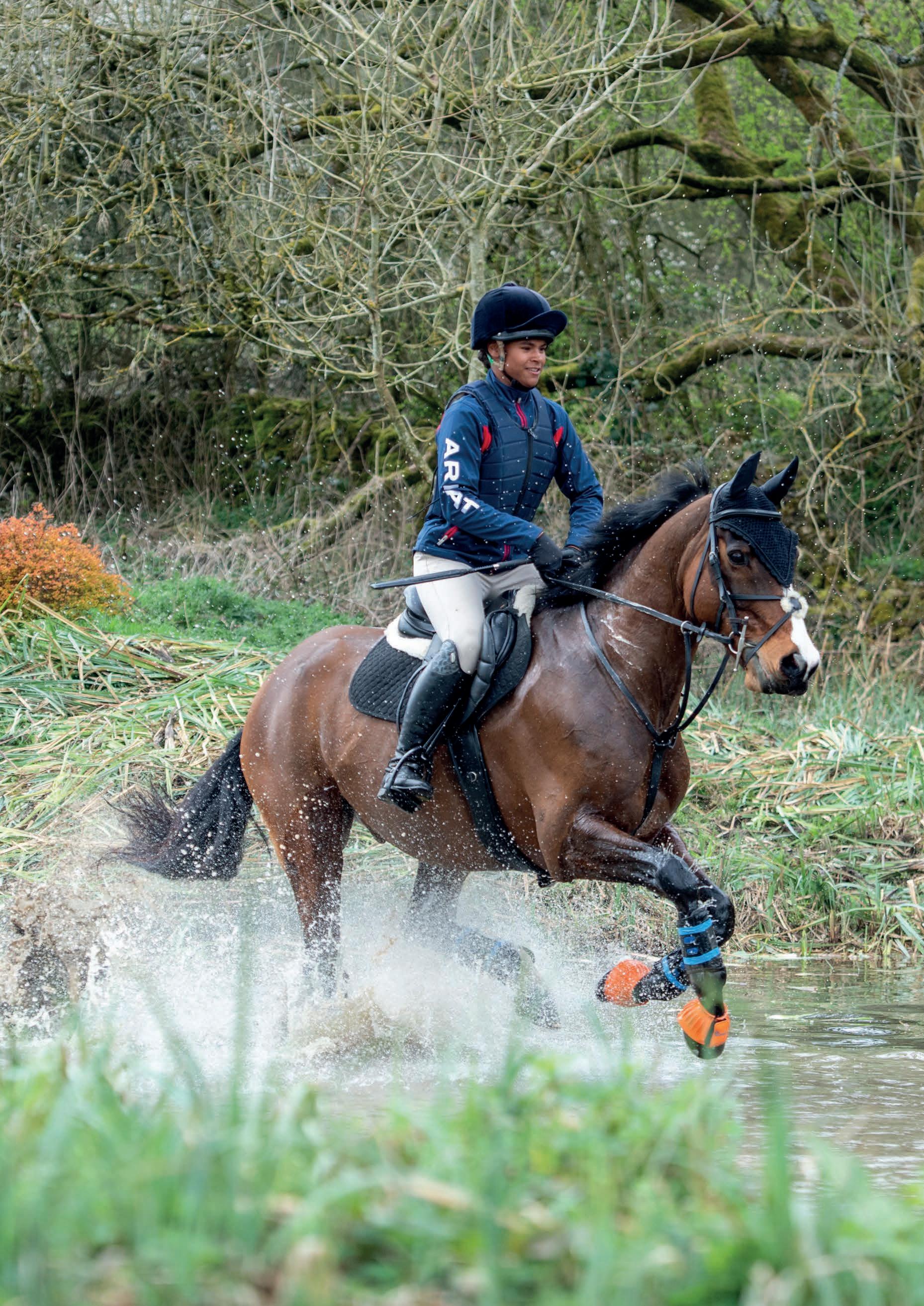
In this feature. . . ➤ Finding the right speed ➤ Increase yourPhotos: Jon Stroud
Running into trouble on the cross-country course? Olympic eventer Vittoria Panizzon is here to help you solve some common problems
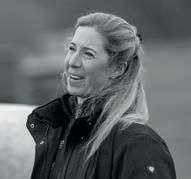
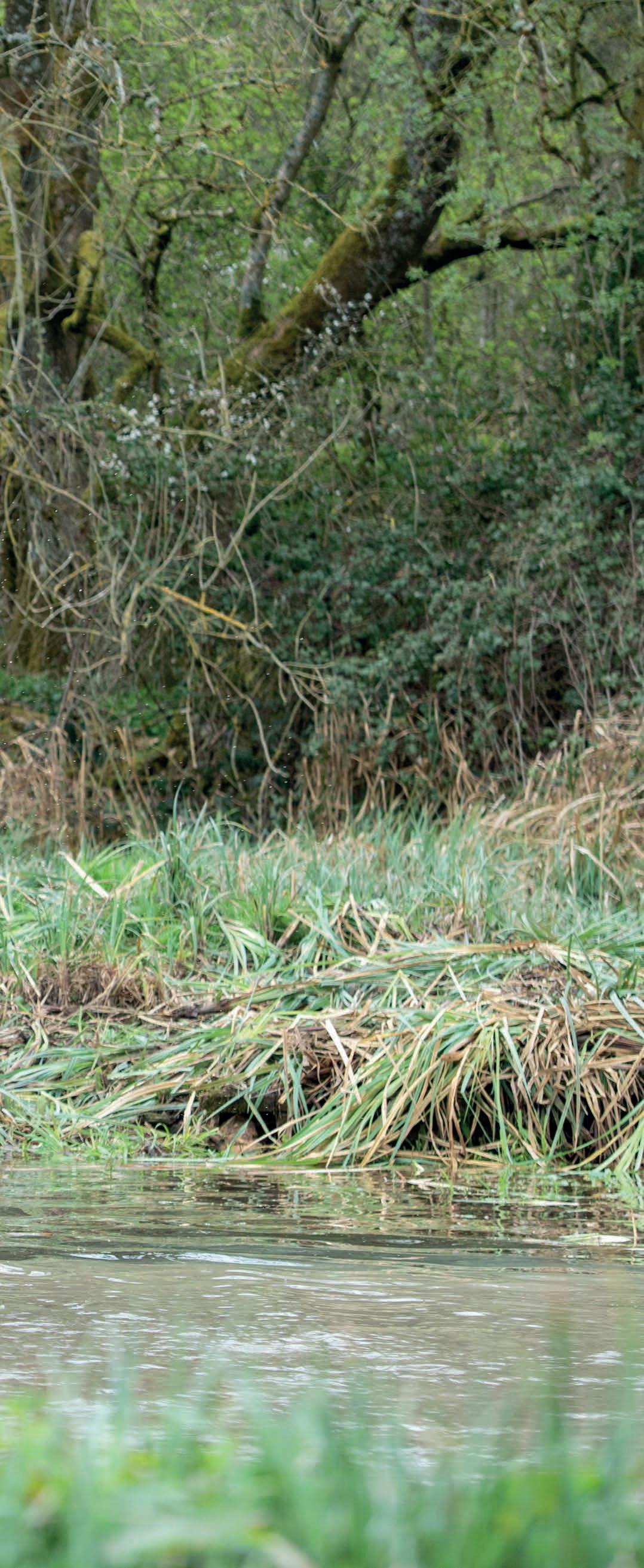
Vittoria Panizzon is an event rider who has represented Italy at three Olympic Games. She has numerous top-10 finishes at five-star and championship level, as well as many wins at four-star events.
Cross-country courses are designed to test our skills, so it’s no surprise that the challenges we’re presented with can lead to a few difficulties now and again. Whether your horse is known for running out the side door or simply for being too fast, check out my problem-solving tips that will help fine-tune your round and enhance your cross-country toolkit.
Granted, spending time getting to know your horse on every level is a significant factor in your success, but horses have minds of their own and individual personalities, and we should never lose sight of that. Some horses are more inclined to pick up the pace and leave you struggling for control, while others back off fences with little excuse. In some cases, this can make them unpredictable and, therefore, your task of getting the pair of you from A to B becomes difficult. Dealing with horses who are spooky, nappy or too speedy can be mentally and physically draining, so let’s look at how you can overcome these all-too-common problems.
Alison Buttery is a certified mindset and confidence coach, a BHS APC senior coach and an experienced rider, who specialises in helping riders overcome their nerves. She’s also the founder of The Everyday Equestrian.

If you’re worried about stepping to the next level in your riding, Alison Buttery has some advice for achieving your dream
Do you feel it’s time to step up a notch with your horse? Perhaps you’re comfortable with your competing but feel unsure about when and how to stretch your comfort zone? Maybe your dream is to compete at a certain level, or perhaps your coach is telling you you’re ready for a bigger challenge. Whatever your reason, the idea of moving up can feel exciting and daunting at the same time.
Some riders struggle with mental blocks around jumping bigger tracks, performing well in more demanding dressage tests, or qualifying for regional or national competitions. Being able to step up to the next level is an important part of developing ourselves as competitive riders and achieving our equestrian goals, but how can you can find the motivation and confidence to make the changes you want?
When you challenge yourself, your mind can create all kinds of distortions and limiting beliefs in its attempt to keep you safe. The mind loves the concept of certainty and does everything it can to reduce risk. If you’ve ever experienced nerves around riding and found yourself conjuring up all kinds of imagined threats and risks, you’ll know this only too well.
As riders, we need to learn to become more comfortable with the concept of uncertainty, since there are few guarantees when we ride our horses.
Many riders struggle with this, as their minds are looking for a 100% guarantee that nothing will go wrong and they’ll be safe However, there’s plenty we can do to keep as safe as possible, achieve our goals and, ultimately, enjoy riding our horses. Developing riding skills and security in the saddle, communicating effectively with your horse, having regular lessons and working on your fitness, mindset and confidence are totally under your control and help create the physical and psychological foundations for doing what you love with your horse.
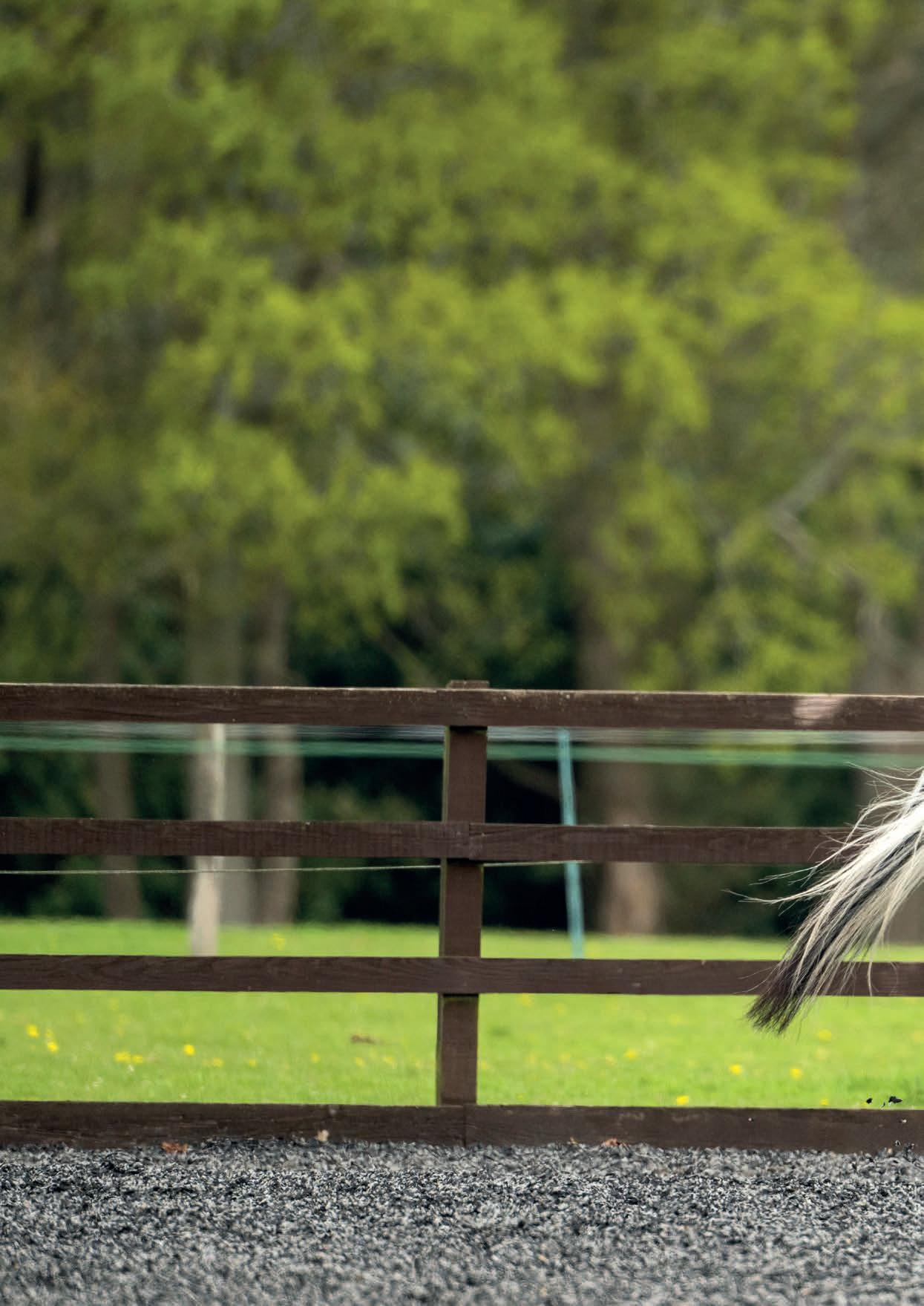
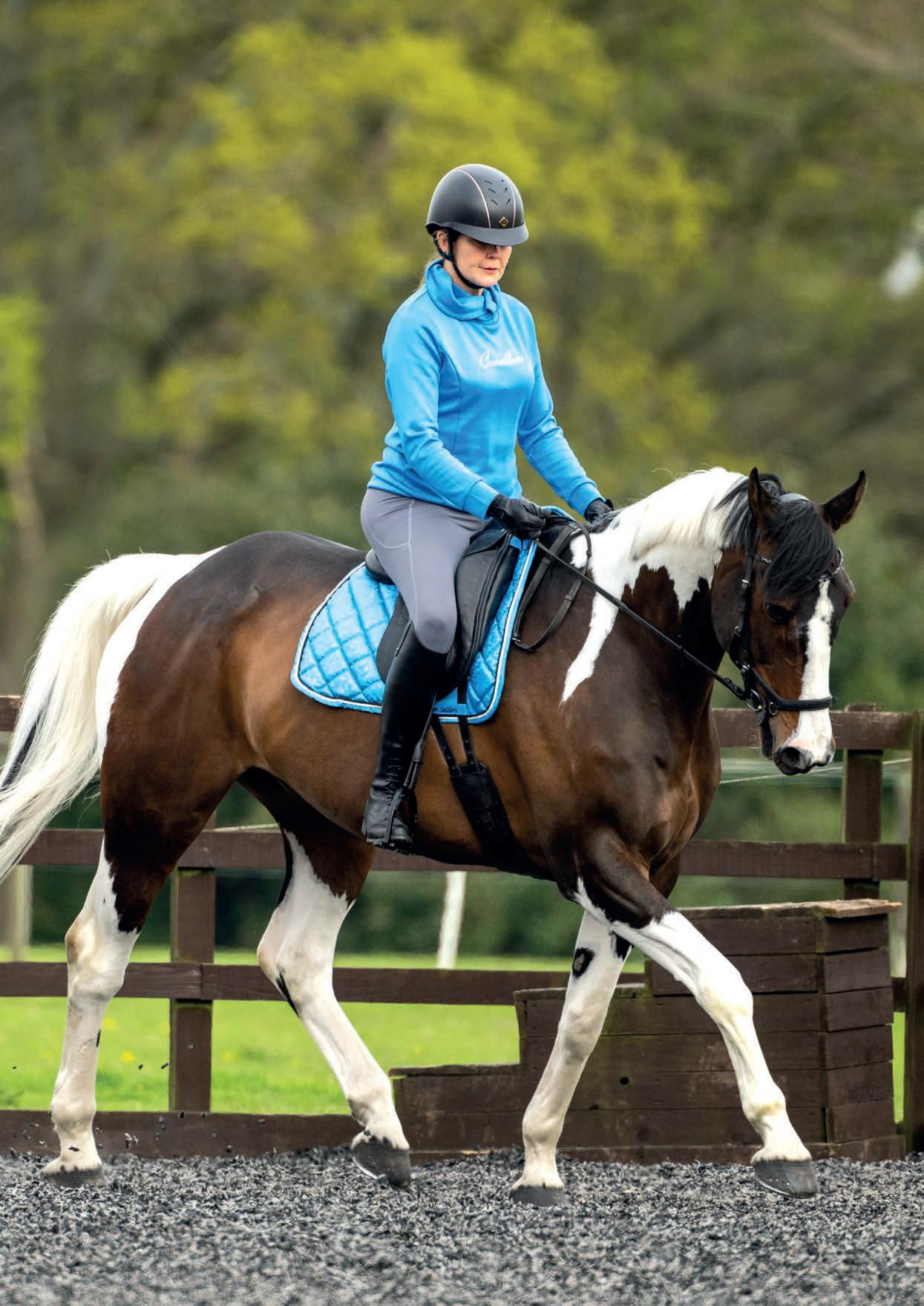
Photos: Jon Stroud, Nigel Baker Photography, Joe Kirby Photography, Piaffe Photography/shutterstock.com
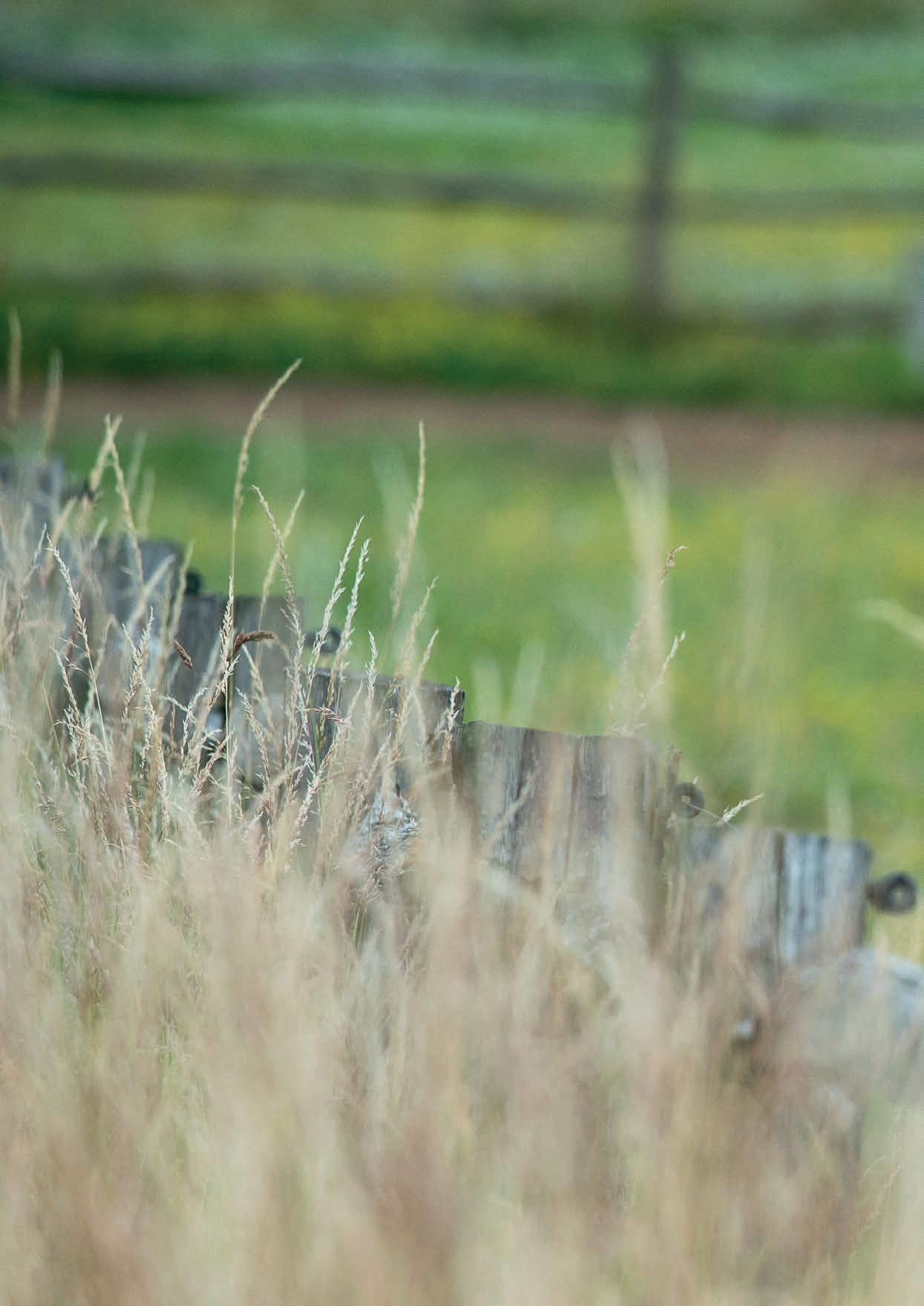
Georgie Hodson BVM BVS MRCVS graduated from the University of Nottingham in 2019 and joined Haven Veterinary Group in East Yorkshire as a mixed animal vet.

Allergies are something most of us are familiar with to some extent, either in ourselves or our animals. Essentially, an allergy is a reaction by the immune system to something that is completely harmless, and horses can develop one in a similar way to people by reacting to substances found in their environment, feed or medication.
An allergic reaction is triggered when the horse comes into contact with an allergen, such as being bitten by an insect or inhaling pollen, and the cells of the immune system interpret this as a possible threat.
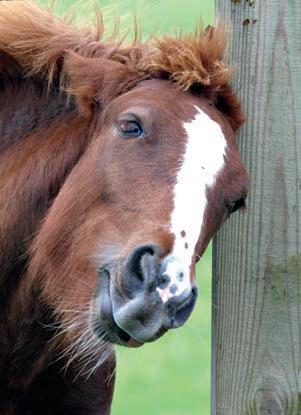
This starts a cascade of reactions within the body causing the production of antibodies, as well as the release of chemicals such as histamine and prostaglandins. These then cause body tissues to show the signs we see during allergy flare-ups, such as itchy skin, coughing and runny eyes.
Before a reaction can occur, a horse’s immune system must become sensitised to an allergen, which means the immune cells must have encountered the allergen before, thereby allowing them to recognise it. Because of this, allergies are more common in middle-aged to older horses.
The reasons this sensitisation occurs is unclear. Some breeds, for example Welsh ponies, seem genetically predisposed to developing allergies, although this doesn’t necessarily mean it’s bound to happen.
Allergies are more common in middle-aged to older horses
